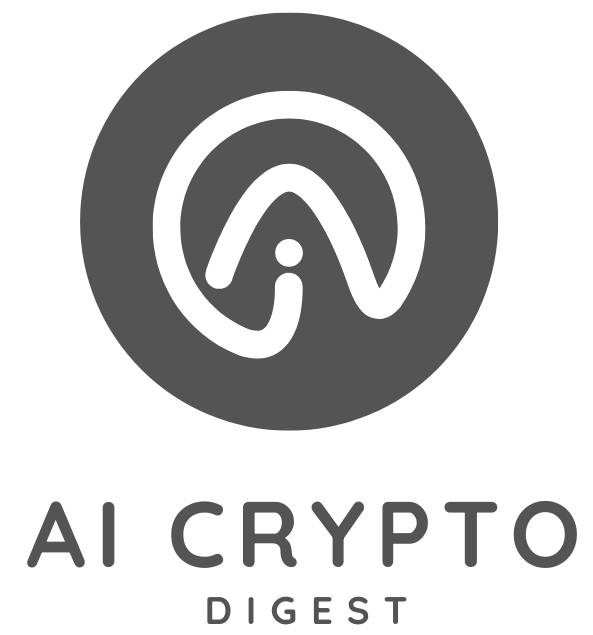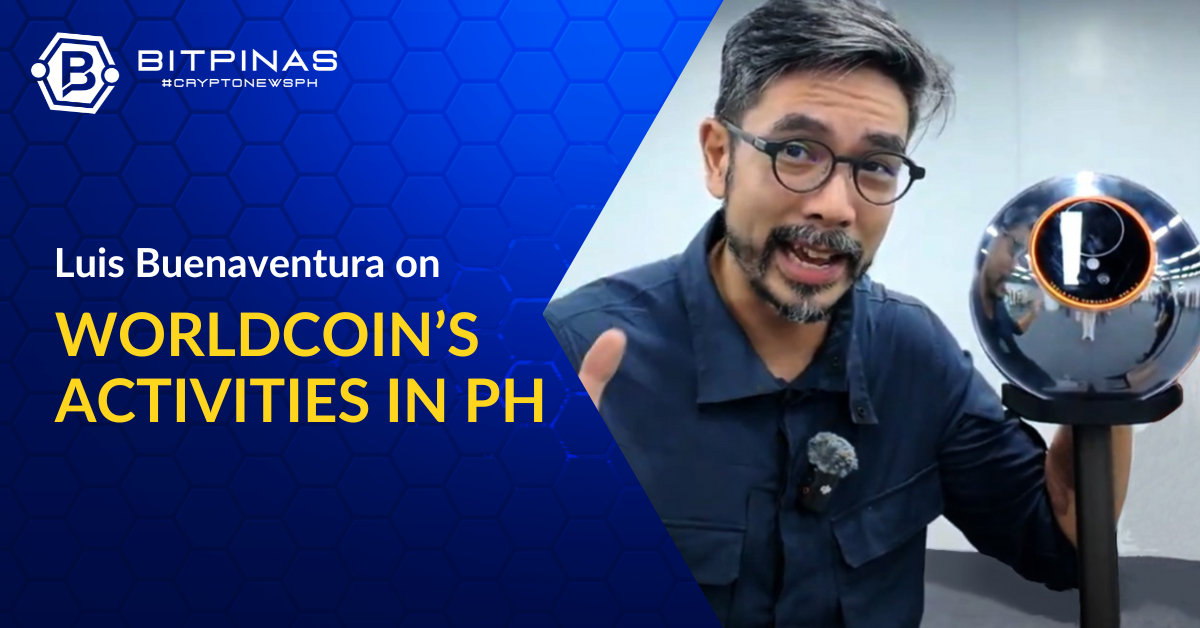Disclaimer: This article is for informational purposes only and does not constitute financial advice. BitPinas has no commercial relationship with any mentioned entity unless otherwise stated.
📬 Get the biggest crypto stories in the Philippines and Southeast Asia every week — subscribe to the BitPinas Newsletter.
Luis Buenaventura, the head of GCash’s crypto trading feature GCrypto, clarified key concerns surrounding the iris-scanning activity of blockchain project World, also known as Worldcoin, in the Philippines, addressing common misconceptions about data privacy, security, and user consent.
World Misconceptions
In his Cryptoday article published on July 7, 2025, Buenaventura said users are not handing over their biometric data in exchange for ₱3,500 worth of World’s native token $WLD.
Instead, the Orb generates a unique IrisCode from a person’s eye scan, which is then used to issue a WorldID. He explained that the original scan is deleted immediately and the IrisCode is never stored or written to the blockchain, where only the anonymized WorldID, used to verify that a person is human, is recorded.
To ensure uniqueness, fragments of the IrisCode are checked across a distributed network using Secure Multi-Party Computation, which prevents any single party from accessing the complete data, the GCrypto chief explained.
Buenaventura also said the World Foundation, a non-profit organization that supports World, has no centralized database to hack, and no personal information, such as name or contact details, is required to receive the token reward.

He added that users in the Philippines must attend an orientation session at Orb locations and give their consent before scanning.
While acknowledging broader ethical debates about AI and digital ID systems, Buenaventura rejected claims that the activity is exploitative, stating that informed consent is part of the process and that data remains under the user’s control.
“WorldID’s purpose is to prove that you’re a human, not that you’re a specific human. When I get scanned by an Orb, all I’m doing is proving that I’m a real person (because of my unique iris patterns); I am NOT proving I am Luis Buenaventura from Taguig. Your name, email, personal information, contact information… These are all extraneous bits of data that will only become part of your World profile if you voluntarily add them. If you don’t, then it is literally just a blockchain-powered checkbox that says “I am not a robot.””
Luis Buenaventura, Executive, GCrypto Head and Vice President, GCash
The GCrypto head also pointed to other emerging biometric verification systems, such as Humanity Protocol, and said competition in the space is expected as digital authentication tools evolve.
World on GCash
Just like Philippine Digital Asset Exchange (PDAX), which powers its crypto platform GCrypto, $WLD is also listed and available for trading on the platform.
In response to a user inquiry on its official page, GCash confirmed that the World App is registered and officially affiliated with the platform.

Worldcoin Hype Compared to Axie Infinity Boom
However, in a separate post published on July 1, Buenaventura said the current surge of interest in the blockchain project in the Philippines resembles the early rise of Axie Infinity in 2021, citing both its potential for mass adoption and concerns over long-term viability.
In a Facebook post, Buenaventura shared that in his visit to Orb locations in Quezon City, he observed hundreds of people lining up to scan their irises in exchange for cryptocurrency rewards.
The scene, he noted, evoked the same “chills” he felt during Axie Infinity’s peak, when 1.5 million Filipinos were first introduced to the decentralized crypto space.
“Axie singlehandedly brought 1.5M Filipinos into the decentralized crypto universe for the first time, and until that point no other single project had ever come close to that level of mass adoption… But I also remember having serious concerns about Axie’s tokenomics and sustainability, which I wrote about extensively at the time. Ultimately, those issues proved to be insurmountable, and well … we all know how that ended.”
Luis Buenaventura, GCrypto Head and Vice President, GCash
Buenaventura noted that World, which offers users ₱3,000 in tokens and up to ₱6,000 in referral bonuses, is currently unmatched as an onboarding engine in the local crypto scene. He acknowledged that for many Filipinos, the financial incentive is powerful: “₱3,000 for a retina scan is a pretty good deal for 95% of the population.”
Despite the project’s low barrier to entry, unlike Axie Infinity, where there is no initial investment required, Buenaventura expressed concern over World’s token design, which he said creates “tremendous sell pressure” as users quickly cash out their rewards.
“I can totally see this mechanism onboarding a couple of million Filipinos within the next year … but at the same time I have very similar worries about its sustainability. It’s superior to Axie in the sense that no one needs to spend any money to get started, and there’s no investment angle other than the token itself.”
Luis Buenaventura, GCrypto Head and Vice President, GCash
In the Philippines, Axie Infinity began gaining traction in 2020 during the height of the COVID-19 pandemic, when widespread lockdowns and job losses pushed many Filipinos to seek alternative sources of income.
The game’s popularity was amplified by the “scholarship” system, where wealthier players, called managers, lent their in-game NFT characters Axies to others, called scholars, in exchange for a share of the earnings. This model enabled thousands of Filipinos, especially those who could not afford the high cost of entry, to participate.
However, the boom was short-lived. By early 2022, the value of its in-game token, $SLP, had plummeted by over 99%, rendering the game economically unsustainable for most players.
World in PH
World began its iris-scanning operations in the Philippines in January, starting in Bulakan, Bulacan, and has since expanded to other areas in the province. Developer Tools for Humanity confirmed the activities are part of a “closed beta.” Three months after launch, the company announced plans to pilot a national rollout, starting with two cities in Metro Manila.
In a Bitpinas webcast in April, web3 leaders Eliezer Rabadon and Jopet Arias expressed concerns over World’s nationwide iris-scanning rollout in the Philippines, citing privacy risks, lack of user awareness, and its timing during the election season.
They warned that financially vulnerable Filipinos may give up sensitive biometric data in exchange for crypto rewards without fully understanding the implications. Both also called for stronger government oversight and urged World to collaborate with the local Web3 community to ensure ethical implementation and proper education.
According to its website, World currently operates 10 Orb verification sites across Metro Manila, Rizal, and Bulacan, as of July 2025:
- Antipolo – Cupang Barangay Hall, Antipolo City, Rizal
- Antipolo Triangle Mall, Antipolo City, Rizal
- Greenhills – V Mall, San Juan, Metro Manila
- Marketplace Kalentong, Mandaluyong City, Metro Manila
- Gateway 2, Cubao, Quezon City
- Farmers Plaza (A), Level 3, Araneta Center, Quezon City, Metro Manila
- Farmers Plaza (B), Level 3, Araneta Center, Quezon City, Metro Manila
- Appleland Building, Baclaran, Pasay City, Metro Manila
- Pulilan Casa Real, Pulilan, Bulacan
- Cindy Square, Marilao, Bulacan
This article is published on BitPinas: Like Axie Infinity Craze: GCrypto Chief Explains Concerns on Worldcoin
What else is happening in Crypto Philippines and beyond?






